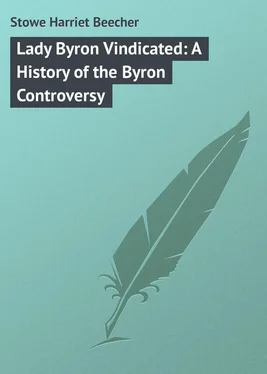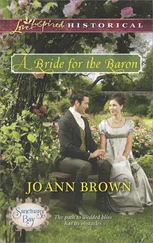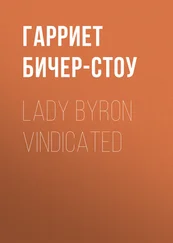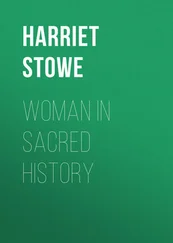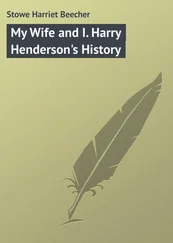Harriet Stowe - Lady Byron Vindicated - A History of the Byron Controversy
Здесь есть возможность читать онлайн «Harriet Stowe - Lady Byron Vindicated - A History of the Byron Controversy» — ознакомительный отрывок электронной книги совершенно бесплатно, а после прочтения отрывка купить полную версию. В некоторых случаях можно слушать аудио, скачать через торрент в формате fb2 и присутствует краткое содержание. ISBN: , Жанр: foreign_prose, на английском языке. Описание произведения, (предисловие) а так же отзывы посетителей доступны на портале библиотеки ЛибКат.
- Название:Lady Byron Vindicated: A History of the Byron Controversy
- Автор:
- Жанр:
- Год:неизвестен
- ISBN:http://www.gutenberg.org/ebooks/44791
- Рейтинг книги:3 / 5. Голосов: 1
-
Избранное:Добавить в избранное
- Отзывы:
-
Ваша оценка:
- 60
- 1
- 2
- 3
- 4
- 5
Lady Byron Vindicated: A History of the Byron Controversy: краткое содержание, описание и аннотация
Предлагаем к чтению аннотацию, описание, краткое содержание или предисловие (зависит от того, что написал сам автор книги «Lady Byron Vindicated: A History of the Byron Controversy»). Если вы не нашли необходимую информацию о книге — напишите в комментариях, мы постараемся отыскать её.
Lady Byron Vindicated: A History of the Byron Controversy — читать онлайн ознакомительный отрывок
Ниже представлен текст книги, разбитый по страницам. Система сохранения места последней прочитанной страницы, позволяет с удобством читать онлайн бесплатно книгу «Lady Byron Vindicated: A History of the Byron Controversy», без необходимости каждый раз заново искать на чём Вы остановились. Поставьте закладку, и сможете в любой момент перейти на страницу, на которой закончили чтение.
Интервал:
Закладка:
'"My dear Lady Byron, – I can rely upon the accuracy of my memory for the following statement. I was originally consulted by Lady Noel, on your behalf, whilst you were in the country. The circumstances detailed by her were such as justified a separation; but they were not of that aggravated description as to render such a measure indispensable. On Lady Noel's representation, I deemed a reconciliation with Lord Byron practicable, and felt most sincerely a wish to aid in effecting it. There was not on Lady Noel's part any exaggeration of the facts; nor, so far as I could perceive, any determination to prevent a return to Lord Byron: certainly none was expressed when I spoke of a reconciliation. When you came to town, in about a fortnight, or perhaps more, after my first interview with Lady Noel, I was for the first time informed by you of facts utterly unknown, as I have no doubt, to Sir Ralph and Lady Noel. On receiving this additional information, my opinion was entirely changed: I considered a reconciliation impossible. I declared my opinion, and added, that, if such an idea should be entertained, I could not, either professionally or otherwise, take any part towards effecting it.
'"Believe me, very faithfully yours, '"Steph. Lushington.'I have only to observe, that, if the statements on which my legal advisers (the late Sir Samuel Romilly and Dr. Lushington) formed their opinions were false, the responsibility and the odium should rest with me only . I trust that the facts which I have here briefly recapitulated will absolve my father and mother from all accusations with regard to the part they took in the separation between Lord Byron and myself.
'They neither originated, instigated, nor advised that separation; and they cannot be condemned for having afforded to their daughter the assistance and protection which she claimed. There is no other near relative to vindicate their memory from insult. I am therefore compelled to break the silence which I had hoped always to observe, and to solicit from the readers of Lord Byron's "Life" an impartial consideration of the testimony extorted from me.
'A. I. Noel Byron.The effect of this statement on the literary world may be best judged by the discussion of it by Christopher North (Wilson) in the succeeding May number of 'The Noctes,' where the bravest and most generous of literary men that then were – himself the husband of a gentle wife – thus gives sentence: the conversation is between North and the Shepherd: —
North. – 'God forbid I should wound the feelings of Lady Byron, of whose character, known to me but by the high estimation in which it is held by all who have enjoyed her friendship, I have always spoken with respect!.. But may I, without harshness or indelicacy, say, here among ourselves, James, that, by marrying Byron, she took upon herself, with eyes wide open and conscience clearly convinced, duties very different from those of which, even in common cases, the presaging foresight shadows … the light of the first nuptial moon?'
Shepherd. – 'She did that, sir; by my troth, she did that.'
North. – 'Miss Milbanke knew that he was reckoned a rake and a roué ; and although his genius wiped off, by impassioned eloquence in love-letters that were felt to be irresistible, or hid the worst stain of, that reproach, still Miss Milbanke must have believed it a perilous thing to be the wife of Lord Byron… But still, by joining her life to his in marriage, she pledged her troth and her faith and her love, under probabilities of severe, disturbing, perhaps fearful trials, in the future…
'But I think Lady Byron ought not to have printed that Narrative. Death abrogates not the rights of a husband to his wife's silence when speech is fatal … to his character as a man. Has she not flung suspicion over his bones interred, that they are the bones of a – monster?.. If Byron's sins or crimes – for we are driven to use terrible terms – were unendurable and unforgivable as if against the Holy Ghost, ought the wheel, the rack, or the stake to have extorted that confession from his widow's breast… But there was no such pain here, James: the declaration was voluntary, and it was calm. Self-collected, and gathering up all her faculties and feelings into unshrinking strength, she denounced before all the world – and throughout all space and all time – her husband, as excommunicated by his vices from woman's bosom.
''Twas to vindicate the character of her parents that Lady Byron wrote, – a holy purpose and devout, nor do I doubt sincere. But filial affection and reverence, sacred as they are, may be blamelessly, nay, righteously, subordinate to conjugal duties, which die not with the dead, are extinguished not even by the sins of the dead, were they as foul as the grave's corruption.'
Here is what John Stuart Mill calls the literature of slavery for woman, in length and breadth; and, that all women may understand the doctrine, the Shepherd now takes up his parable, and expounds the true position of the wife. We render his Scotch into English: —
'Not a few such widows do I know, whom brutal, profligate, and savage husbands have brought to the brink of the grave, – as good, as bright, as innocent as, and far more forgiving than, Lady Byron. There they sit in their obscure, rarely-visited dwellings; for sympathy instructed by suffering knows well that the deepest and most hopeless misery is least given to complaint.'
Then follows a pathetic picture of one such widow, trembling and fainting for hunger, obliged, on her way to the well for a can of water, her only drink, to sit down on a ' knowe ' and say a prayer.
'Yet she's decently, yea, tidily dressed, poor creature! in sair worn widow's clothes, a single suit for Saturday and Sunday; her hair, untimely gray, is neatly braided under her crape cap; and sometimes, when all is still and solitary in the fields, and all labour has disappeared into the house, you may see her stealing by herself, or leading one wee orphan by the hand, with another at her breast, to the kirkyard, where the love of her youth and the husband of her prime is buried.
'Yet,' says the Shepherd, 'he was a brute, a ruffian, a monster. When drunk, how he raged and cursed and swore! Often did she dread that, in his fits of inhuman passion, he would have murdered the baby at her breast; for she had seen him dash their only little boy, a child of eight years old, on the floor, till the blood gushed from his ears; and then the madman threw himself down on the body, and howled for the gallows. Limmers haunted his door, and he theirs; and it was hers to lie, not sleep, in a cold, forsaken bed, once the bed of peace, affection, and perfect happiness. Often he struck her; and once when she was pregnant with that very orphan now smiling on her breast, reaching out his wee fingers to touch the flowers on his father's grave…
'But she tries to smile among the neighbours, and speaks of her boy's likeness to its father; nor, when the conversation turns on bygone times, does she fear to let his name escape her white lips, "My Robert; the bairn's not ill-favoured, but he will never look like his father," – and such sayings, uttered in a calm, sweet voice. Nay, I remember once how her pale countenance reddened with a sudden flush of pride, when a gossiping crone alluded to their wedding; and the widow's eye brightened through her tears to hear how the bridegroom, sitting that sabbath in his front seat beside his bonny bride, had not his equal for strength, stature, and all that is beauty in man, in all the congregation. That, I say, sir, whether right or wrong, was – forgiveness .'
Here is a specimen of how even generous men had been so perverted by the enchantment of Lord Byron's genius, as to turn all the pathos and power of the strongest literature of that day against the persecuted, pure woman, and for the strong, wicked man. These 'Blackwood' writers knew, by Byron's own filthy, ghastly writings, which had gone sorely against their own moral stomachs, that he was foul to the bone. They could see, in Moore's 'Memoirs' right before them, how he had caught an innocent girl's heart by sending a love-letter, and offer of marriage, at the end of a long friendly correspondence, – a letter that had been written to show to his libertine set, and sent on the toss-up of a copper, because he cared nothing for it one way or the other.
Читать дальшеИнтервал:
Закладка:
Похожие книги на «Lady Byron Vindicated: A History of the Byron Controversy»
Представляем Вашему вниманию похожие книги на «Lady Byron Vindicated: A History of the Byron Controversy» списком для выбора. Мы отобрали схожую по названию и смыслу литературу в надежде предоставить читателям больше вариантов отыскать новые, интересные, ещё непрочитанные произведения.
Обсуждение, отзывы о книге «Lady Byron Vindicated: A History of the Byron Controversy» и просто собственные мнения читателей. Оставьте ваши комментарии, напишите, что Вы думаете о произведении, его смысле или главных героях. Укажите что конкретно понравилось, а что нет, и почему Вы так считаете.
